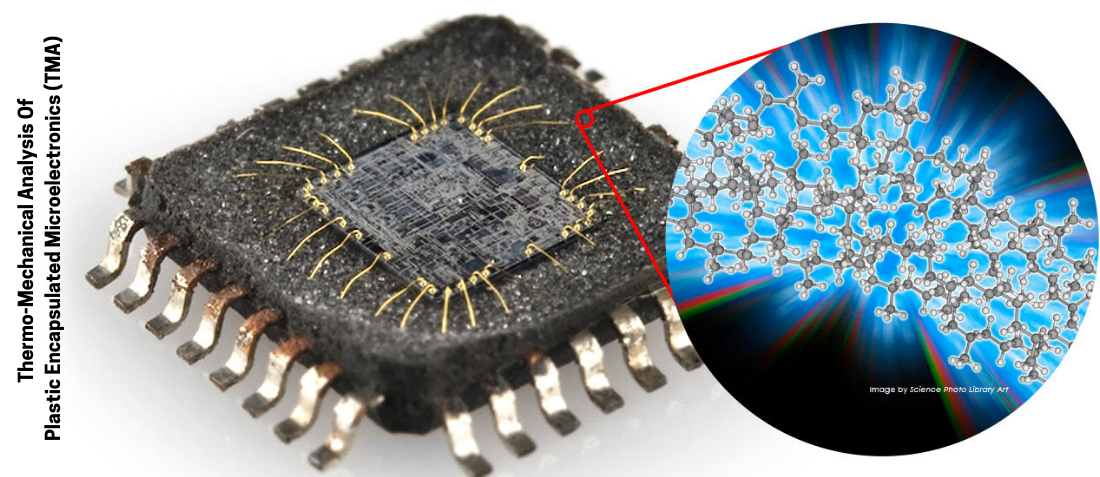The thermomechanical analysis of plastic encapsulated microelectronic, and COTS parts is a fundamental technique to avoid (during the design and fabrication stage) and foresee anomalies related to the deformation of packages with temperature. Thus, this is a very effective tool to disclose and screen out possible reliability concerns related to the thermo-mechanical integrity and stability of the devices. This is because the TMA technique provides accurate information about the material’s coefficient of linear thermal expansion (CTE), shrinkage, softening, glass transition temperature (Tg), among others.
Besides, TMA instruments have a wide range of advanced options that can be used to determine viscoelastic properties such as the material’s stiffness (modulus), damping properties (tan delta), creep, and stress relaxation. The TMA is beneficial for measuring these material properties locally, especially in manufactured components or assemblies where the compatibility of materials is paramount.
The test is highly relevant for New Space applications and is closely related (in fact, it is one of the main causes) to the appearance of the delaminations detected by SAM (Scanning Acoustic Microscopy) in plastic COTS, as the expansion and contraction of the component create great stress on its internal structure causing cracks or gaps. These failures can trigger other failure mechanisms (structural, electrical failure, etc.).
